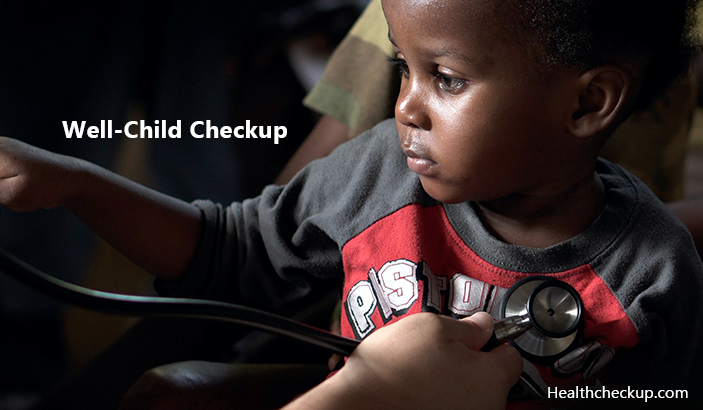Immunity is the body’s ability to recognize infections and prevent them from causing sickness. The human immune system is a complex, fragile, and ever-changing system which constantly develops, with cells being created and destroyed regularly. These cells are crucial in preventing infections by identifying and eliminating harmful organisms such as bacteria or viruses.
Immunity is a fundamental building block of a child’s growth and development. Children gradually improve their immune systems by fighting consequent attacks of viruses and bacteria, such as diphtheria (D), tetanus (T), and pertussis (aP). Moreover, it can be strengthened in different ways, including a good diet and acquiring essential vaccines. Regarding the latter, it’s important to note the difference between the DTaP and Tdap vaccine.
While several factors can heavily impact children’s immunity, such as the environment, genetics, diet, and stress, there are other ways to strengthen a child’s immunity. Continue reading to learn more.
1. Give A Balanced Diet
A balanced diet consists of proteins, carbohydrates, fruits, vegetables, calcium, and vegetable oils, among other essential foods. It’s advisable to minimize processed foods that have added sugar and fats.
Greens are particularly critical because they promote detoxification and other biochemical processes in the body. Vegetables like broccoli and sprouts are rich in Sulphur, and dark leafy vegetables like spinach and kale are rich in B–Vitamins.
Some children may not like to eat vegetables for specific reasons. In this case, you should find innovative ways of incorporating vegetables into your child’s meals. For instance, in a fruit smoothie, you can add leafy vegetables. This way, they won’t be able to notice the veggies because they will taste the fruits more. Likewise, you can add grated carrots and zucchini to pancakes and serve them for breakfast.
2. Get Enough Sleep
For children, sleep varies by age. Newborns should sleep for 18 hours daily, infants should take 12 – 16 hours, while teenagers should have 8 – 10 hours of sleep. This is essential as sleep promotes the release of cytokines by the immune system, which in turn increases antibodies.
You can set a healthy sleep routine for your child by fixing their bed and waking up on time. Moreover, ensure your child gets uninterrupted sleep every day to help strengthen their immunity.
3. Exercise Daily
Exercise improves the number of natural killer cells in adults and children. It works better to exercise with your children to motivate them by participating in sports like hiking and cycling.
Exercise goes hand in hand with a proper diet. Without exercise, your child may develop obesity or suffer other health issues. However, given that exercise is essential, it should be done moderately, so your child doesn’t get too engaged to have trouble sleeping. Furthermore, exercise benefits cognitive development and promotes emotional control.
4. Acquire All Important Vaccines
As a parent, you’re responsible for updating your child’s vaccinations. Confirm with the doctor if your child is up to date with all the necessary vaccinations. If there are any pending, organize for your child to get them so their health is not compromised. For instance, children six months and older should get the flu shot yearly. Vaccinations boost the immune system’s ability to recognize bacteria and viruses and fight them accordingly.
5. Protect Your Child Against The Spread Of Germs
Germs can weaken your child’s immune system, especially if they have other health problems. The most profitable way of keeping germs at bay is ensuring that your child regularly washes their hands with soap and water. Hence, it’s best to make it a routine for your child to wash their hands after they use the toilet, before taking meals, and after playing outside and holding pets, among other critical times. Moreover, you can bring disposable wipes to use whenever you’re out in places. This may come in handy when you don’t have access to running water and soap to wash your hands.
6. Keep Away From Secondhand Smoke
If your child lives in a household where members smoke cigarettes, they may likely catch infections. This is because they breathe faster, and their natural detoxification system is not fully developed. Secondhand smoke can make children susceptible to bronchitis, asthma, and ear infections. Likewise, it may increase the risk of sudden infant death syndrome (SIDS) and further inhibit children’s neurological development and intelligence.
7. Provide Prebiotics and Probiotics
Prebiotics are non-digestible nutrients that increase the growth of essential microbes in the gut, while probiotics are live microorganisms or bacteria that promote gut health. Both are critical to fostering neurodevelopment and healthy brain function in children. Examples of foods rich in prebiotics are yogurt and pickles, and those rich in probiotics are cabbage, chickpeas, onions, and garlic.
In Conclusion
Boosting your child’s immune system is critical to their overall health and begins when they’re born. In addition to the ways discussed here, you may continue to breastfeed your child as long as you can since breast milk contains antibodies and white blood cells that promote immunity. It also protects babies from allergies, ear infections, meningitis, and pneumonia, among other diseases. Viruses cause most diseases in children; therefore, it’s advisable to go easy on antibiotics since they may weaken a child’s immune system’s ability to fight infections. Have your pediatrician prescribe them in case of stubborn bacterial infections.









